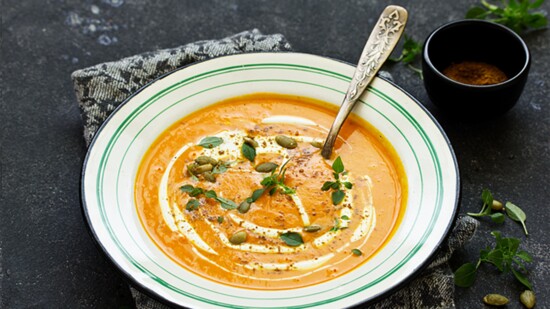When you think about your food and beverage consumption and how it relates to your health and how you feel, what comes to mind?
Beyond providing fuel for your day, have you ever connected what you’re eating to your physical and mental health or even performance in your personal and professional life?
Throughout history, the concept of “food as medicine” has been recognized in many cultures, with Greek physician, Hippocrates, stating, “Let food be thy medicine and medicine be thy food.” Modern science supports the idea that nutrients in food can serve as a form of “medicine” for prevention and healing.
In this article, we'll explore how to leverage this powerful tool to improve your health.
The Power of Nutrition
What we eat (and drink) profoundly affects nearly every function of our body and brain. A diverse, balanced diet supports energy production, stabilizes blood sugar, and prevents energy crashes. It enhances brain function, influencing mood and cognitive clarity, while also playing a crucial role in preventing or improving chronic health conditions, like heart disease and diabetes. Eating nutrient-dense foods also promotes optimal weight and healthier skin. Conversely, a diet of processed foods and refined sugars leads to harm to our bodies and minds.
Tips to Make Food Your “Medicine:”
1. Practice Mindfulness:
Remind yourself of the power food has to affect your health (and those you care about) when you shop and eat.
Slowing down eating also promotes this idea, while improving digestion, nutrient absorption, and hunger cues.
2. Enjoy Eating:
Real, whole foods as close as possible to their original form, made in nature.
Lots of plants: vegetables and fruits of all kinds, legumes, and whole grains.
Quality protein: animal (poultry, eggs, meat, seafood, dairy) and plant sources (lentils, beans, peas, tofu, tempeh).
Healthy fats: olive oil, olives, avocado oil, avocados, coconut oil, nuts, seeds, grass-fed butter, ghee.
3. Avoid:
Ultra-processed foods: factory-made, artificial ingredients.
Refined, added sugars, sweetened beverages, and starchy foods.
Foods made with refined vegetable and seed oils (soybean, corn, etc.).
Pesticides, antibiotics, and hormones in food.
4. Feed Your Gut: healthy gut, healthier body and brain.
Include: fermented or cultured foods (sauerkraut, kimchi, etc.); prebiotic foods (apples, artichokes, asparagus, etc.); and fiber (avocados, beans, berries, etc.).
5. Cook More and Plan: Cooking is one of the most important ways to improve health; meal prep is a way to make it convenient.
Find recipes you like, make a plan for the week, and shop for ingredients.
Cook once, eat twice (or more) with leftovers.
Chop and prep ingredients to have on hand for quick meal prep and healthy snacks.
Keep a kitchen full of healthy ingredients for easier cooking.
6. Make It Enjoyable: Having fun with cooking makes it more enjoyable and reinforces a commitment to healthy eating.
Try new recipes and ingredients regularly; our bodies love variety!
Add spices and herbs for flavor and numerous health benefits.
Include your household in making meals together.
Visit a farmer’s market (in Millcreek!) or community garden.
Join a supportive community for healthy eating and living.
By embracing the "food as medicine" approach, you can take charge of your health to feel and look your best!
Curious to learn more and how to transition to a healthier new you? Scan this code for a free health strategy session with holistic health coach Julie Wilde, or connect at Julie@transformwithwellness.com.
Pumpkin Curry Soup
Nourishing, Quick, and Versatile!
Ingredients:
1 onion, chopped
2 cloves garlic, chopped
1 TB olive oil
1 pinch salt
¼ teaspoon black pepper
2 ½ cups pumpkin puree (2-15 oz. cans)
2 cups vegetable broth
1 tsp curry powder
½ teaspoon turmeric
¼ tsp nutmeg
½ teaspoon cinnamon
1 cup full-fat coconut milk
Garnish: Toasted pumpkin seeds, chopped chives, and/or the cream from the top of the coconut milk
Pumpkin Curry Soup
Serves 4
Autumn vegetables are hearty, nutrient-dense, and perfect for warming, comforting dishes. Enjoy this healthy Fall soup that is both delicious and full of health-promoting nutrients!
Pumpkin is rich in vitamins A and C and a good source of fiber and potassium. A base of vegetable broth provides essential minerals and hydrates. Spices add nutritional value: curry powder and turmeric have anti-inflammatory and antioxidant benefits; nutmeg supports digestion and cognitive function; and cinnamon helps regulate blood sugar and reduce inflammation. As a bonus, coconut milk provides healthy fats for heart and brain health.
Directions:
1. Sauté the onions and garlic in the olive oil until golden brown and season with salt and pepper. Add the pumpkin, ½ of the broth, and spices. Simmer uncovered for 15 minutes, stirring periodically.
2. Let the soup cool slightly and then purée the soup by transferring to a blender or using an immersion blender. DO NOT try to blend the soup in a blender when it is very hot. Add some of the cool broth when blending as needed.
3. Return the soup to the pan and add the rest of the broth, and coconut milk
4. Simmer for 5-10 minutes.
5. Top with a sprinkle of toasted pumpkin seeds, chopped chives, and/or the reserved coconut cream.
Bon Appétit!
